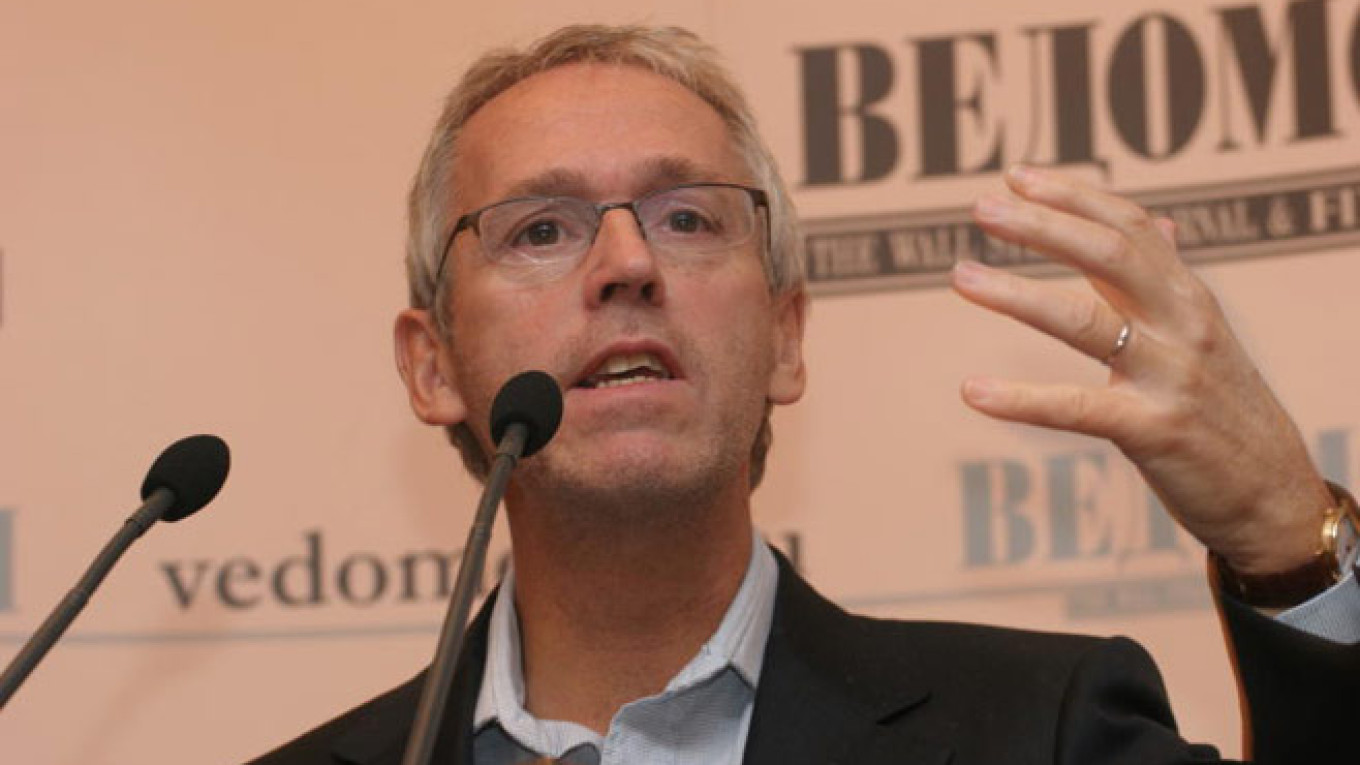When the Soviet Union crumbled, foreign media companies and entrepreneurs swept into Russia, bringing with them a wave of modernization and expertise. Buying up and founding television stations, newspapers and magazines, they embedded Western media culture and journalistic standards and introduced Russians to Forbes' rich lists and Cosmopolitan's glamour.
In 2015, the trend was reversed — foreigners were largely expelled, and their businesses passed into Russian ownership.
Foreigners' hold over media had become a potential national security threat, said Vadim Dengin, co-author of a law passed late last year that limits foreign ownership of media to 20 percent.
"When we see attempts to attack and seize the weapon [of media] ?€” any government would try to thwart it," said Dengin, a deputy in the Russian State Duma.
The logic was simple. After its annexation of Crimea in spring 2014 and support for pro-Russian separatists in eastern Ukraine, Russian state-owned media unfurled a campaign of propaganda. Amid deteriorating relations with the West, Dengin and other officials believed that foreign owners, whose control was particularly strong in print media, would promote foreign propaganda for their own governments.
"The media is a weapon, more serious than a Kalashnikov," Dengin said.
Foreigners were given a deadline of Feb. 1, 2016 to reduce their stakes to below the 20 percent limit. During 2015, they began to leave. Some, such as U.S. corporations Hearst and Disney, chose to dilute their stakes and cede control to other owners. Others, like Britain's Pearson, America's News Corp and Germany's Axel Springer, quit the market altogether.
"It was a semi-nationalization," said Derk Sauer, the Dutch entrepreneur who in 1992 founded Independent Media, which became one of Russia's largest publishing houses. Sauer said Russian authorities had seized the moment to achieve multiple aims: Confrontation with the West provided the political cover to corral some media that criticized the Kremlin into Russian hands, where they would be easier to pressure.
By shrinking the pool of potential buyers and setting a deadline to sell, the media law also collapsed the value of the assets on sale. When billionaire Alisher Usmanov and a business partner earlier this year bought control of CTC Media, a U.S.-based television network founded by an American in 1989, its market value had collapsed by 80 percent. It sold for $200 million.
Some Russian media insiders have said Usmanov's billion-dollar discount on the CTC deal, and not the propaganda battle, was likely the real reason for the law.
Usmanov "was the biggest winner in all of this," said Sauer.
It is not clear whether buyers of media are in cahoots with authorities, but in recent years editors critical of the Kremlin have been sacked from a series of Russian-owned media. The transfer of control to new owners like Usmanov, who, like all Russia's business magnates, has strong ties to the Kremlin, has raised fears that media's editorial independence is at risk.
Russia has gone from having some of world's the most permissive regulation on foreign media ownership, particularly for print titles, to the opposite end of the spectrum. Legislation banning "undesirable" foreign non-governmental organizations has restricted publication of their information. Another law co-authored by Dengin and currently working its way through the Duma will see Russian media forced to report any foreign funding that they receive.
Even where a new owner wants to preserve independence, it will be difficult to maintain standards, said Sauer. Vedomosti, the newspaper he set up in 1999 with the Financial Times and The Wall Street Journal, drew on the training, technology, innovation, values and political protection of having the two larger papers as co-owners. These are things the Russian businessman who now owns Vedomosti "has to do without," Sauer said.
Moreover, foreign companies had been the big money in Russia, buying and developing innovative media projects. Now, a media entrepreneur has a far narrower pool of potential buyers and would have to sell for less. "Media as a business has become unattractive," said Sauer.
The result is that consumers will lose out. "When investors leave, competition and quality fall," said Alexander Vinokurov, the owner of Dozhd, an independent Russian television station. "To find quality independent media will now be difficult," he added.
Dengin was unfazed by the concerns. "No-one needs" a mass of news websites offering "useless" political messages, he said.
Contact the author at [email protected]
A Message from The Moscow Times:
Dear readers,
We are facing unprecedented challenges. Russia's Prosecutor General's Office has designated The Moscow Times as an "undesirable" organization, criminalizing our work and putting our staff at risk of prosecution. This follows our earlier unjust labeling as a "foreign agent."
These actions are direct attempts to silence independent journalism in Russia. The authorities claim our work "discredits the decisions of the Russian leadership." We see things differently: we strive to provide accurate, unbiased reporting on Russia.
We, the journalists of The Moscow Times, refuse to be silenced. But to continue our work, we need your help.
Your support, no matter how small, makes a world of difference. If you can, please support us monthly starting from just $2. It's quick to set up, and every contribution makes a significant impact.
By supporting The Moscow Times, you're defending open, independent journalism in the face of repression. Thank you for standing with us.
Remind me later.


